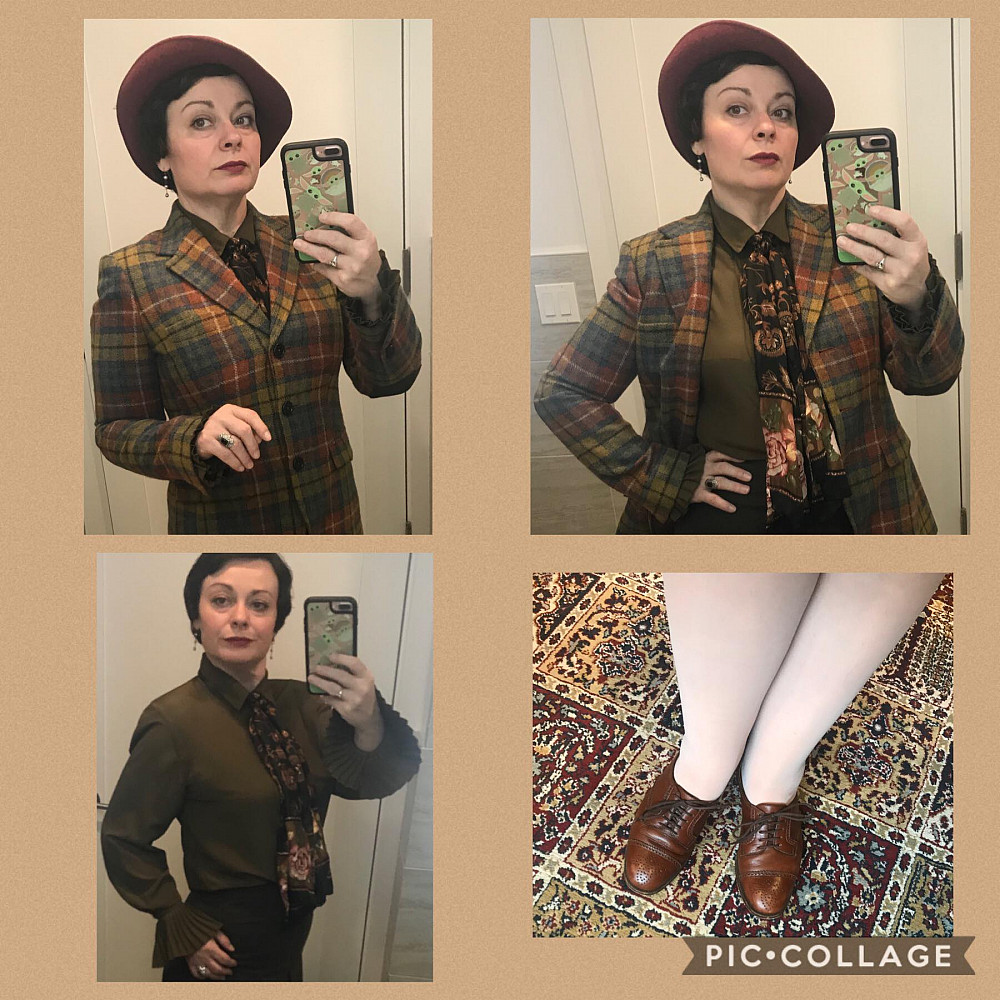Theatre
A Lawyer’s Appeal for Theatre
July 23, 2020

Scripting a life in law and theatre
Cottrell’s affection for theatre grew from a lifelong love of reading. “I was the nerd who would go to the library and check out two weeks’ worth of books, and I’d read at least a book a day,” she remembers. Like the novels she voraciously consumed, theatre was a place where she could explore other worlds and see through different eyes. At the age of eight, she began acting professionally in plays and musicals, discovering a new passion in performing the powerful words that spoke to her on the page.
Literature also introduced Cottrell to stories about impactful lawmakers, such as the well-known fictional attorney Atticus Finch. She was inspired to help people through law not only because of the stories she read but also because of the people she saw making a difference in real life. “I grew up Latina in Texas in the ’80s and ’90s, [amid] a lot of social injustice,” she shares. “A lot of the more powerful figures and the folks I looked up to had a law degree in their background or had studied law significantly in the past. I think that’s where that came from: the idea of being able to effect change.”
Although Cottrell had long been interested in pursuing law, her heart pulled her toward the stage first. She studied theatre at Southwestern, working her way through college with three jobs. Growing up, she had frequently moved around the country because of her father’s work in commercial construction, so Southwestern was the first school she called home for longer than two years. Aside from great performance experiences, the biggest takeaway from her Southwestern Experience is the enduring bond she made with fellow artists and theatremakers. “The friendships that I’ve held onto have been the ones that I made in those brown squishy chairs,” she says, referencing the endearing name given to the lobby chairs where fine arts students used to commune before the building’s renovation.
One of the friends Cottrell made at the “brown squishies” is her now-husband, Jeremy. They attended graduate school at Louisiana State University together immediately after Southwestern to continue their theatre studies. They then founded their own theatre company, CalibanCo Theatre, with a friend in Minnesota. During the company’s seven years of award-winning and critically acclaimed success, Cottrell was appointed an arts commissioner for Minneapolis, one of the nation’s top cities for the arts. At the same time, she returned to graduate school for a degree in nonprofit management and public administration to help bridge the gap in business experience within their company.
Shortly into her studies, she realized that the public-administration field was not quite the right fit for her. “I was more of a creator, and public administration is really implementing law; it’s not enacting law,” she says. Luckily, the university offered a joint-degree program combining a master of arts in nonprofit management and a juris doctor degree, and Cottrell set out to fulfill her life goal of becoming a lawyer.
Cottrell pictured her law career as serving arts-affiliated areas such as intellectual property, trademark, and copyright law, but the opportunities she came across led her down a less-obvious creative route. While in school, she landed a job with the director of estate and business planning at Northwestern Mutual, a financial service and insurance company. The work was greatly fulfilling. “Estate, business, and tax planning, even though I know it sounds droll, is really creative in the sense that you’re looking at creative solutions to facilitate someone’s goals,” she explains. The field combined her excellent background in connecting donors to organizations with the satisfaction of helping people reach the full potential of all that they had worked for.
The case for a creative lawyer
The work Cottrell does in law often ties back to skills she honed in her theatre training. Her performance tools come in handy when presenting to thousands of people and filming educational videos, and her advanced empathy plays a major role in negotiations. “Going through theatre on the performance side, you’re really in tune with human emotion, [and] you’re trying to figure out people’s motivations. That is all the same when you’re dealing in negotiations and in the law,” she points out. “Having those people skills, that emotional intelligence that you develop as someone in theatre—or any of the arts, honestly, because it’s all connecting to what it is to be human, in some way—is absolutely applicable when it comes to the law, especially in the area that I practice, because you’re trying to get at what people are really trying to accomplish [and] not just what they say they’re trying to accomplish.”
Outside of a bustling work schedule, Cottrell tries to make time for other avenues of creative expression. “It’s never going to be a perfect balance,” she admits. A once-regular writer for her former theatre company, she continues to pen and produce small theatre projects when she can. She has also embarked on a recent social-media project to stay imaginative and well-dressed for her back-to-back Zoom calls. Combining a love of fashion and history, she curates daily outfits as homage to historical moments and figures who have made an impact on her life. Her ensembles have honored influential women, such as Sally Ride, Josephine Baker, and Jane Addams, as well as recent celebrations, such as Pride Month and Loving Day. For our interview, which fell during the first week of Pride Month and on the Black Out Tuesday honoring George Floyd, her outfit was full-vintage earth tones and plaid, inspired by the androgynous spirit of best-selling author (and notorious lover of Virginia Wolfe) Vita Sackville-West.

Counsel for current college students
As she reflects on her time in college, Cottrell offers some advice for current and future Southwestern students. “I think slow down. Enjoy the process as much as the end point,” she recommends. As someone who experienced going straight into graduate school after college, as well as taking a break before returning for another degree and law school, she sees value in giving yourself time to appreciate where you are and where you are heading. Although she had a great experience in graduate school, Cottrell sometimes wishes she had not rushed into it and had instead taken an extra semester at Southwestern to study abroad. “I think when you’re young, you’re like, Argh, I gotta get through college, and I gotta get to grad school! You’re always trying to hit a finish line, versus really being able to enjoy and appreciate the experience as you move through it,” she says.
Cottrell also emphasizes embracing uncomfortable experiences as opportunities for growth. “Challenge yourself, step out of your comfort zone as often as possible, [and] don’t put yourself in situations where you’re the smartest person in the room,” she suggests. While she advocates for engaging openly with discomfort, she also hopes students take the time to be gentle with themselves. “Everyone has that voice in our head, and you have to be kind to yourself; you have to take care of yourself. That’s definitely a priority.”
As for situations that are beyond one’s control, Cottrell offers the encouraging reminder that “nothing is forever, so no matter how bad things are right now, they’re going to change.” Perhaps this feels like the most relevant message for students navigating college and postgraduate decisions amid a pandemic. Cottrell says she thinks a lot about 2020 graduates and the similarities in her past experience as a law school graduate during the Great Recession. Although she was lucky enough to secure a job while in school, it was a daunting time, when student debt and hiring deficiencies left many people feeling unsettled.
For those left in limbo in 2020, Cottrell thinks a willingness to take unconventional routes is an important asset. Whether it is creating your own opportunities, taking an unexpected step to get to the next place, or allowing yourself to sacrifice some plans, she believes that the bright and resourceful students at Southwestern will find a way forward. “I think that’s another advantage to having a liberal-arts and specifically a theatre background: … it helps you maintain creativity and creative problem-solving, and you can get creative in how you get to your end point. You don’t have to follow a traditional path.”


















